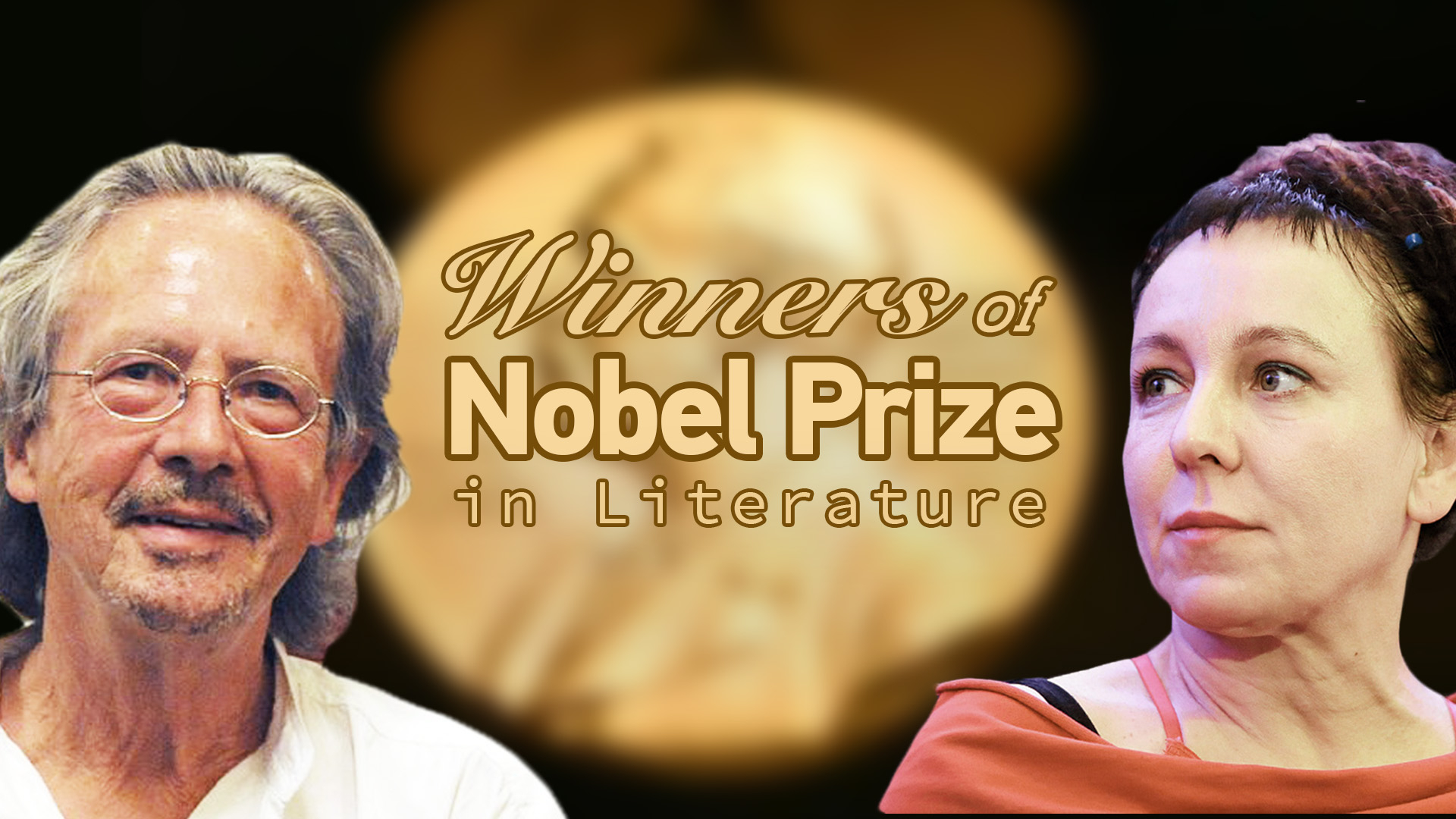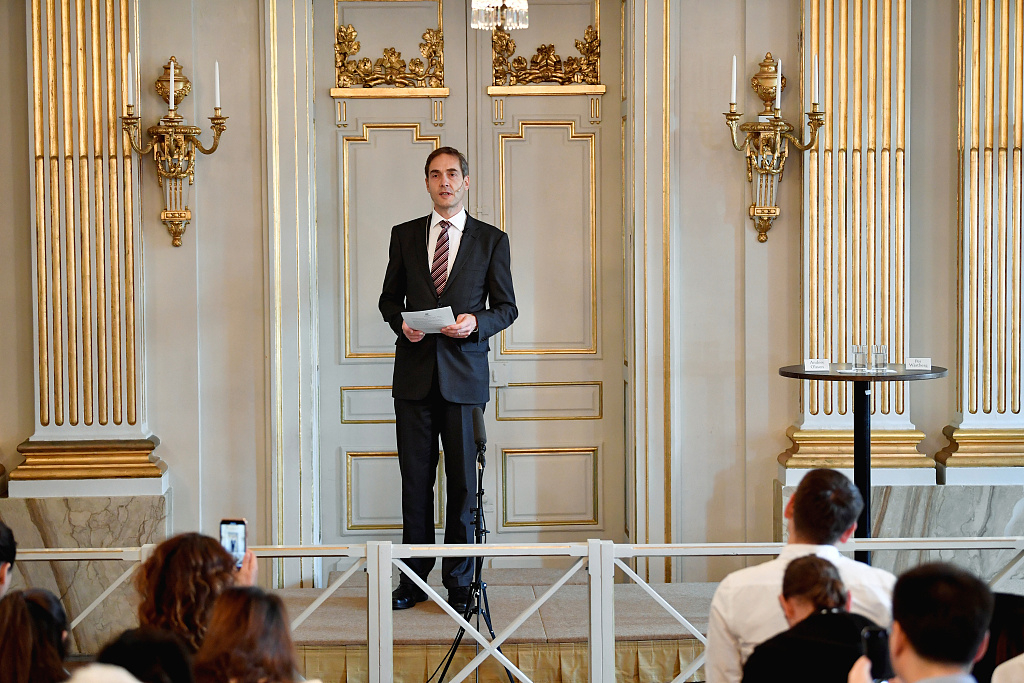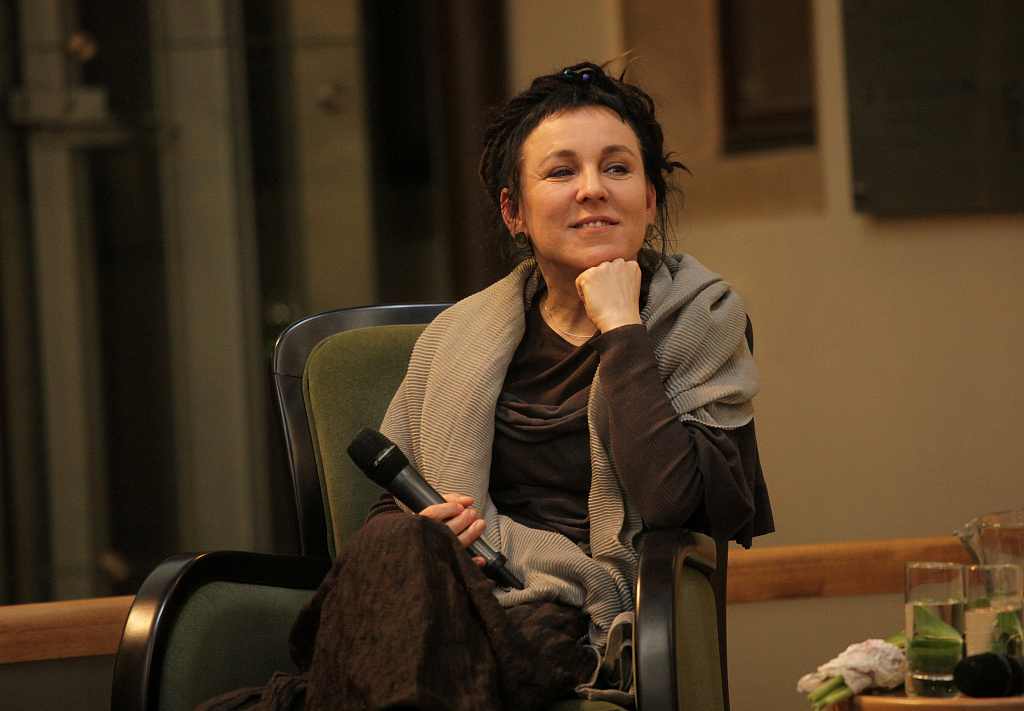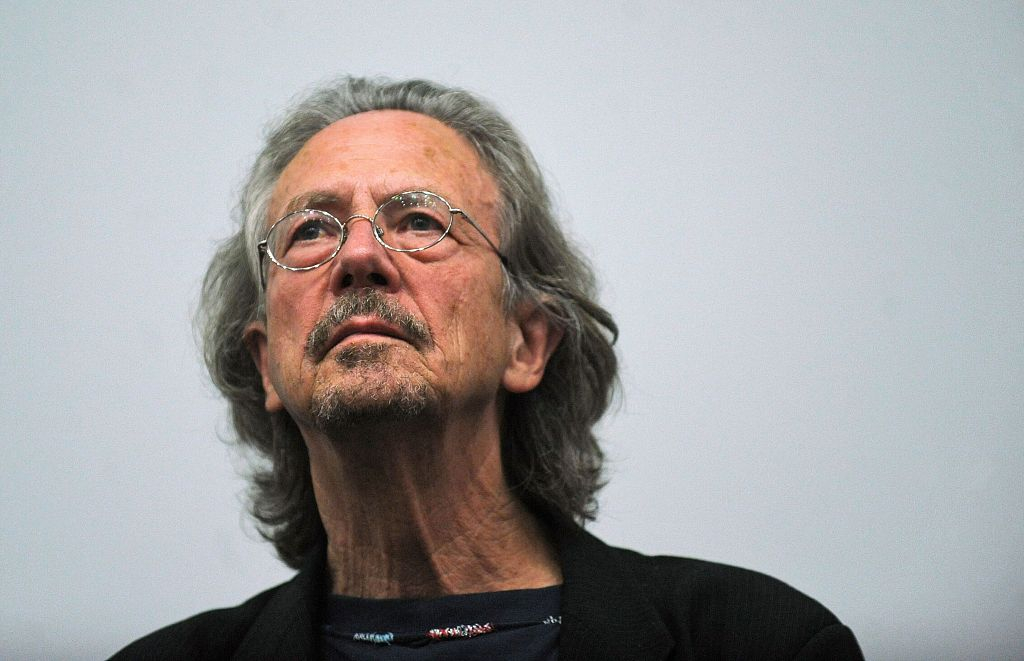01:08

Polish author Olga Tokarczuk has won the Nobel Prize in Literature for 2018 while the 2019 prize went to Austrian author Peter Handke, the Swedish Academy in Stockholm announced on Thursday.
Each Nobel Literature Prize winner is receiving the nine-million-crown (913,000 U.S. dollars) prize, which is funded by the Nobel Foundation.
Tokarczuk was honored "for a narrative imagination that with encyclopedic passion represents the crossing of boundaries as a form of life," the committee said.
The 2019 Nobel laureate Handke won the prize "for an influential work that with linguistic ingenuity has explored the periphery and the specificity of human experience," according to Mats Malm, the Swedish Academy's permanent secretary.

The Permanent Secretary of the Swedish Academy, Mats Malm, announces Olga Tokarczuk as the winner of the Nobel Prize in Literature 2018 and Peter Handke as the winner of the Nobel Prize in Literature 2019, in Stockholm, Sweden, October 10, 2019. /VCG Photo
The Permanent Secretary of the Swedish Academy, Mats Malm, announces Olga Tokarczuk as the winner of the Nobel Prize in Literature 2018 and Peter Handke as the winner of the Nobel Prize in Literature 2019, in Stockholm, Sweden, October 10, 2019. /VCG Photo
'Writer of wonderful wit'
Born in 1962, Tokarczuk is one of the most predominant and critically acclaimed authors in Poland with quickly rising reputation in the English-speaking world.
Her novel "Flights," which was originally released in 2007 and translated into English version in 2017, won the International Booker Prize in 2018.
Lisa Appignanesi, the chair of the judging panel, described her as a "writer of wonderful wit, imagination, and literary panache."

Writer Olga Tokarczuk is pictured in Wroclaw, Poland, March 7, 2019. /VCG Photo
Writer Olga Tokarczuk is pictured in Wroclaw, Poland, March 7, 2019. /VCG Photo
Set in the 17th and 21st centuries, the fragmentary novel combines tales of modern-day travel with some facts, including Dutch anatomist Philip Verheyen's discovery of the Achilles tendon and the transportation of Polish composer Frederic Chopin's heart from Paris to Warsaw after his death.
The 57-year-old author became the 15th woman to be awarded the Nobel Prize in Literature. All of the other 11 Nobel laureates announced so far this week have been men.
'One of the most influential writers in Europe'
Handke, 76, is a novelist, essayist, playwright, screenwriter and translator, who was hailed by the academy as "one of the most influential writers in Europe" after World War Two.
He has been praised for his powerful and profound description of catastrophe. His 1972 work "A Sorrow Beyond Dreams" is an semi-autobiographical novel based on his mother's life and her suicide in 1971.

Austrian writer Peter Handke is pictured during the Estoril Film Festival in Estoril, outskirts of Lisbon, Potugal, November 11, 2009. /VCG Photo
Austrian writer Peter Handke is pictured during the Estoril Film Festival in Estoril, outskirts of Lisbon, Potugal, November 11, 2009. /VCG Photo
Handke has written numerous scripts for films as well. He won German Film Award in Gold for his screenplay "Falsche Bewegung" in 1975.
Academy member Anders Olsson said the two had accepted their prizes. "I only talked to Peter Handke myself. He was very, very moved. At first he did not utter any words," said Olsson.
Scandal leads to cancellation of 2018 prize
This year's Nobel Prize for Literature marks a first in the award's 118-year history with two awards announced simultaneously, including one for 2018 when the ceremony was canceled over the sexual assault scandal.
The 233-year-old Swedish Academy was forced to suspend the prize last year as it was engulfed by rape accusations against the husband of an Academy member.
The Nobel Prize is named after dynamite inventor Alfred Nobel. It has been awarded since 1901 for achievements in science, literature and peace in accordance with his will.
(Cover image by Du Chenxin)